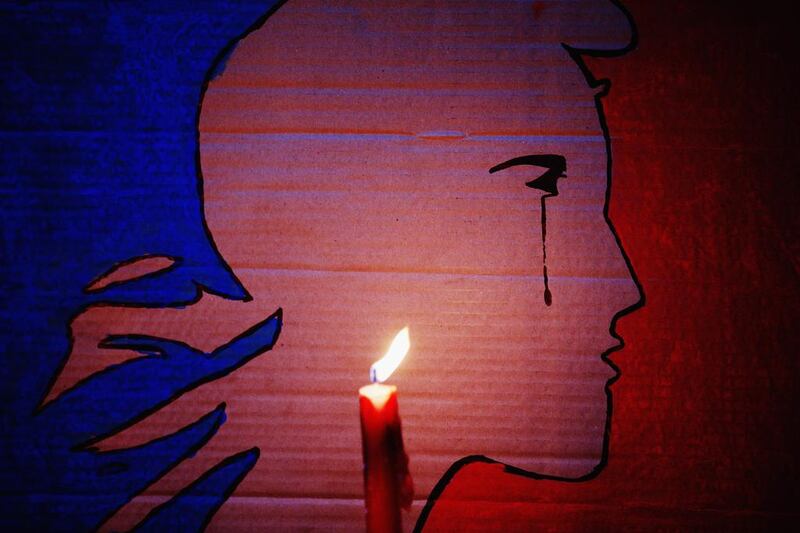The morning after the night of Friday the 13th, terrorists having left a bloody stain on the heart of Paris, a poster was shown on French television with an image of Marianne, a national symbol, adapted to reveal a tear falling from one eye.
Behind the immediate outpouring of grief, there was the resignation that no one can be sure the authorities can prevent a repeat of such murderous events – and more tears.
Security forces in much of Europe have foiled numerous plans by ISIL and other extremists to launch attacks designed to inflict the maximum loss of life and spread fear throughout the population. They have no doubt the attempts will continue.
The declared aim is to inflict punishment for Western government policy, notably but not exclusively in the Syrian conflict.
But even without the French decision to start air strikes against ISIL in Syria last month, extremists have little difficulty in finding grievances, historic or current, to justify carnage against innocent and usually easy targets. Terrorists in the former French colony of Algeria have long regarded France as their greatest enemy, to be struck as often and as hard as possible.
Furthermore, the perpetrators derive additional satisfaction if ordinary, peaceful Muslim residents of those countries suffer an unjust backlash. Analysts point out – including Hanif Qadir, a prominent British counter-extremism campaigner, in comments made to The National last week – that a small, gullible minority of those subjected to racist stereotyping may turn to terrorist organisations as defenders.
When the French-Algerian Kouachi brothers burst into the Paris offices of the irreverent satirical magazine Charlie Hebdo in January, murdering 12 people, the motivation was identifiable, if no less criminal.
Paris's "Bloody Friday", as it is being described, was in a different category, in terms of both the death toll and the targets: young people attending a rock concert, diners on restaurant terraces, those milling around the Stade de France during a football international. All found themselves in the attackers' sights.
But the resulting slaughter, however shocking, can be seen as the logical product of constant threat. Even since the Charlie Hedbo massacre, itself preceded and followed by other murders committed by an accomplice in Parisian streets and at a Jewish supermarket, investigators believe they narrowly averted a plot to kill worshippers at two Catholic churches.
More than 1,000 French nationals have travelled to the Middle East to join ISIL and similar groups. For the whole of Europe, the figure has been put at 3,000 by researchers at the International Centre for the Study of Radicalisation at King’s College, London, and even this may be conservative.
A large number have returned to their countries of origin, there posing a grave threat to national security. While round-the-clock surveillance of all suspects is considered unrealistically labour-intensive, perceived failures to intercept war-hardened extremists have led to calls for such individuals to be imprisoned – a call repeated in the political reaction to Friday’s bloodshed.
But the reality of the struggle between security and terror is a factor identified as long ago as 1984, when the Provisional IRA (Irish Republican Army) killed five people in a bomb attack in the English resort of Brighton in an unsuccessful attempt to assassinate Margaret Thatcher, then Britain’s prime minister.
“Today we were unlucky,” the IRA said in a statement admitting responsibility. “But remember we only have to be lucky once. You will have to be lucky always.”
foreign.desk@thenational.ae






